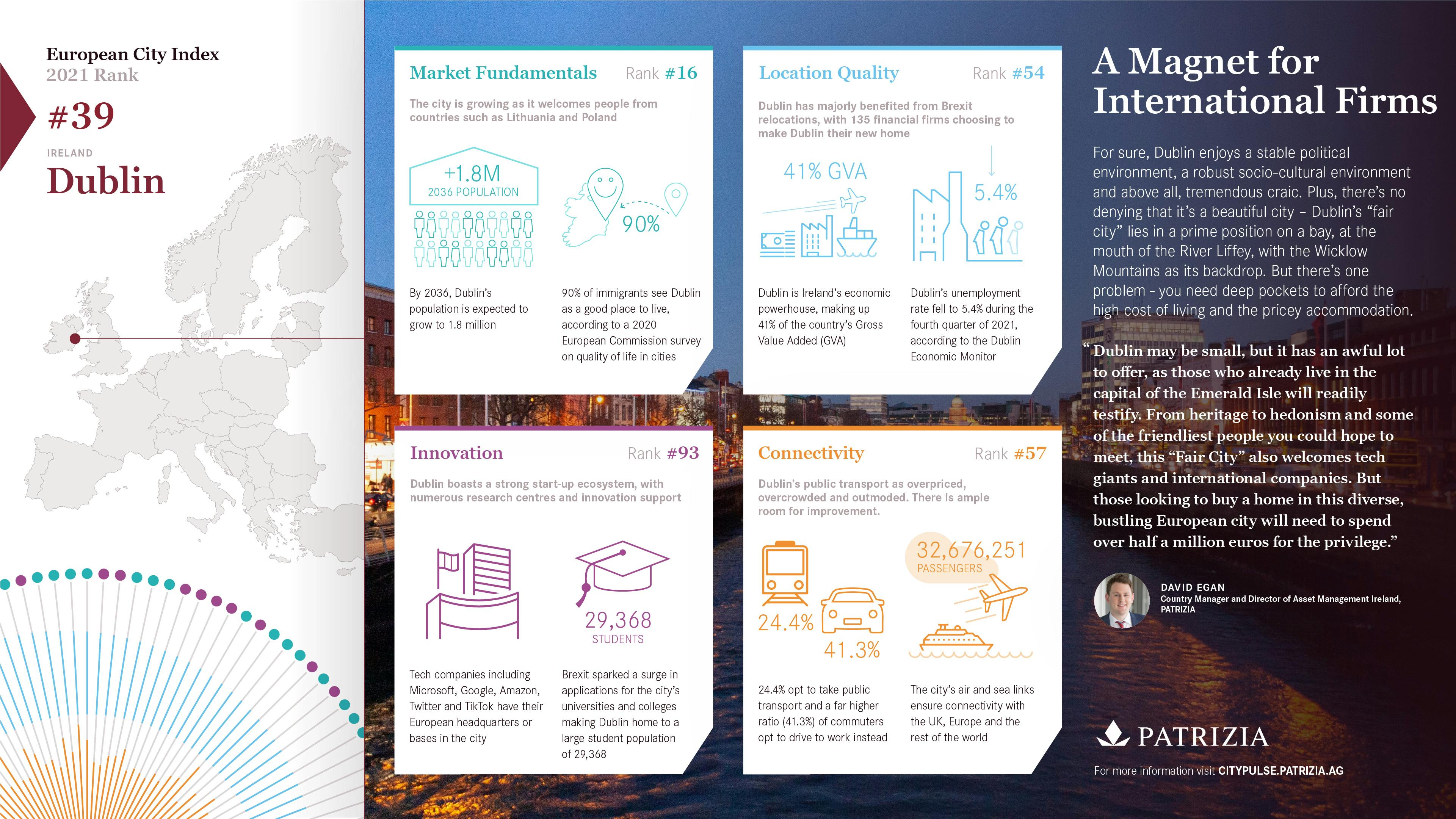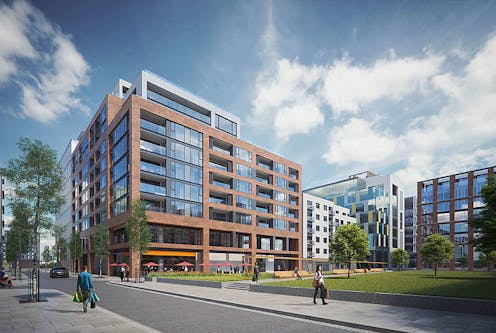A Magnet for International Firms
For sure, Dublin continues to be a highly attractive destination for international firms, thanks to its stable political environment, robust socio-cultural scene, and reputation for tremendous craic. The city's beauty is undeniable – nestled on a bay at the mouth of the River Liffey, with the Wicklow Mountains as its backdrop, Dublin is genuinely a 'fair city.' However, the cost of living in Dublin remains prohibitively high, making it a challenging place for many to afford.
Dublin's Fair City Comes at a Price
For residents of Dublin, one of the most effective ways to reduce the cost of living is to consider relocating to almost any other city within the European Union (EU). Dublin was ranked 51st in the 2023 Mercer Cost of Living report. Yet, while the Irish capital is less expensive than European counterparts such as Copenhagen, London, Amsterdam and Paris, it falls definitely in the expensive bracket and is far more costly than comparable European cities such as Luxembourg, Rome, Oslo and Hamburg.
Furthermore, Dublin remains in the Top 20 cities globally in the Economist Intelligence Unit's (EIU) Worldwide Cost of Living index 2023. Feeling the financial strain, some of the city's residents have already packed up and moved elsewhere.
Despite government efforts aimed at alleviating the impact of soaring living costs for households nationwide, Dublin remains an expensive place to live. The city led Ireland's economic expansion during the ‘Celtic Tiger’ era from the mid-1990s to the late 2000s, fuelled by foreign direct investment. However, the subsequent property bubble and the 2008 global financial crisis triggered a severe economic downturn, causing Dublin rents to skyrocket beyond the reach of many.
Today, a combination of high demand and chronic supply shortages, exacerbated by tighter lending conditions, makes finding an affordable rental property in Dublin exceedingly difficult. Recent data from Davy, Midlands Reak Estate and Daft.ie highlights that the number of rental homes available in Dublin reached an "all-time low" by mid-2023, with only around 1,200 properties listed for rent – still significantly below pre-pandemic levels, which regularly exceeded 4,000 listings. This sharp decline in available rental properties has exacerbated the ongoing housing crisis.
Meanwhile, rental prices remain stubbornly high. By 2023, the average rent for a one-bedroom apartment in Dublin city centre surged to approximately €2,344 per month, reflecting the persistent demand and limited supply. The average cost for a new home in Dublin continued its upward trajectory, reaching around €445,000 in 2023, a significant increase from previous years. This surge in rental and property prices has made affordability a critical issue for many Dublin residents.
The average cost for a new home in Dublin continues to rise, reaching approximately €445,000 by mid-2023. This reflects ongoing pressures in the housing market, driven by limited supply and strong demand. Rental inflation has also persisted, with the average rent for a one-bedroom apartment in Dublin city centre increasing to about €2,344 per month, representing a significant year-on-year rise. The cost to rent a two-bedroom apartment has similarly surged, with prices now averaging around €2,600 per month.
Dublin remains a beautiful and culturally vibrant city that attracts international businesses and offers quality banter and humour among its warm and friendly locals. The city is home to top educational institutions and offers easy access to nature. However, like all good things, Dublin's quality of life comes at a high price, making affordability a key concern for residents.
Institutional investors have flooded into Ireland over the past decade, taking advantage of strong rental yields. Demand for real estate remains strong, although supply is tight and prices are high. The city offers a pro-business economy and is increasingly enticing international students and companies as a result of Brexit. Finally, let’s not forget the great craic.
David Egan, Country Manager and Director of Asset Management Ireland
PATRIZIA City Snapshot


11
Dublin’s Market Fundamentals Ranking
Dublin is home to 1.43 million of some of the friendliest people in the world, accounting for 28.5% of the country’s total population.
By 2036, Dublin’s population is expected to grow to 1.8 million. The city is growing as it welcomes people from countries such as Lithuania and Poland. And 90% of immigrants see Dublin as a good place to live, according to a 2020 European Commission survey on quality of life in cities.




